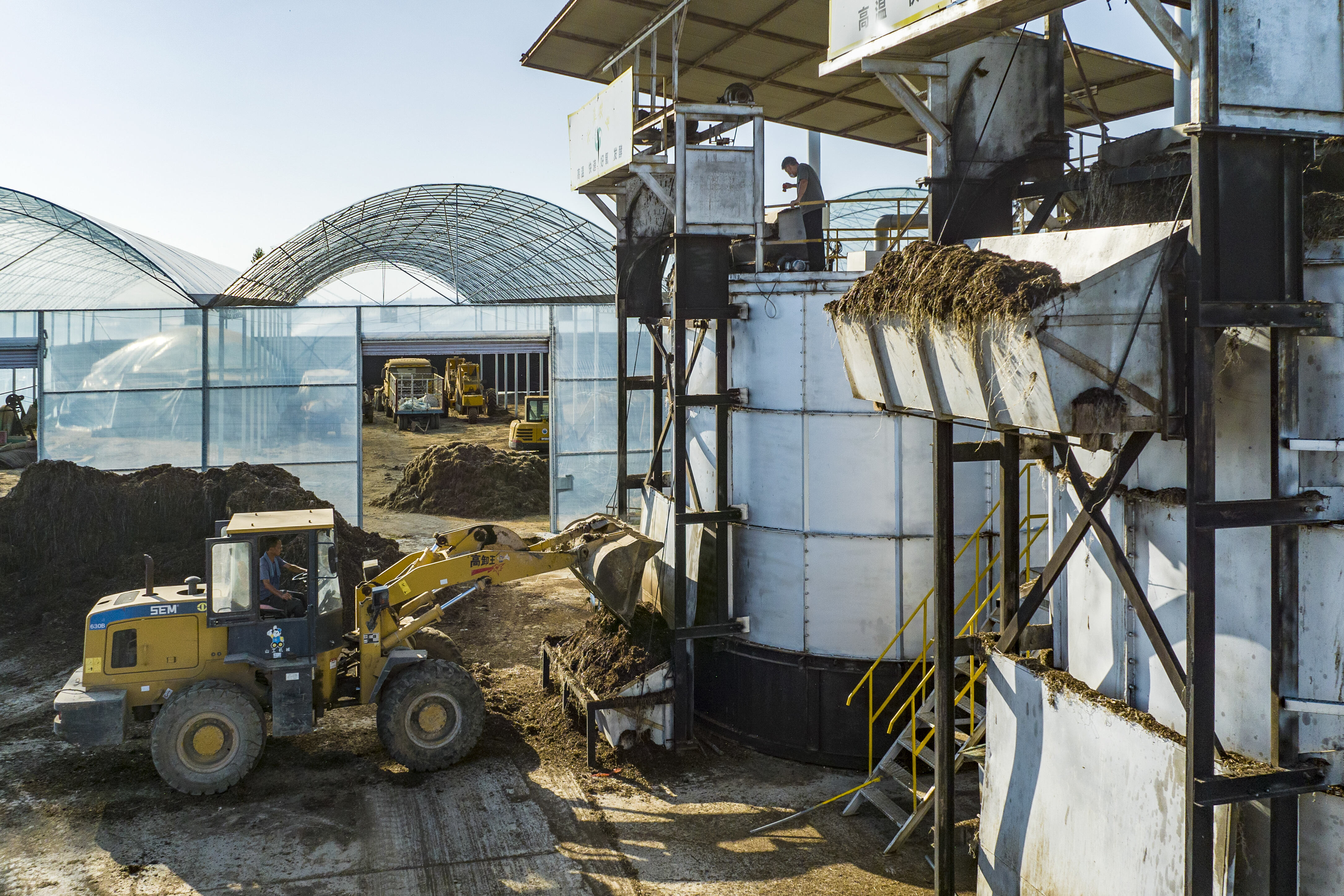Revolutionizing Waste Management: The Launch of Smart Agriculture's Large-Scale Organic Waste Fermentation System In an era where sustainable solutions are more crucial than ever, Smart Agriculture has unveiled a cutting-edge large-scale organic...
Contact
Revolutionizing Waste Management: The Launch of Smart Agriculture's Large-Scale Organic Waste Fermentation System
In an era where sustainable solutions are more crucial than ever, Smart Agriculture has unveiled a cutting-edge large-scale organic waste fermentation system that transforms everyday waste into valuable organic fertilizers. This groundbreaking technology not only addresses the growing challenges of waste management but also contributes significantly to environmental conservation and social well-being.
A Game-Changer in Waste Management and Environmental Protection
At the heart of this innovation lies a sophisticated fermentation process that efficiently breaks down organic waste, such as food scraps, agricultural byproducts, and garden waste, into nutrient-rich organic fertilizers. The system uses advanced microbiological processes, which, through controlled aerobic or anaerobic fermentation, turn waste into a resource that enriches the soil and promotes sustainable farming.
The integration of smart monitoring and automated control systems ensures the fermentation process is optimized, minimizing energy consumption and maximizing output. With sensors tracking temperature, humidity, and oxygen levels, the system ensures an ideal environment for microorganisms to thrive, accelerating waste decomposition while maintaining high efficiency.
By reducing the volume of organic waste sent to landfills and decreasing the release of harmful greenhouse gases like methane, the system contributes to a significant reduction in the environmental footprint. This process supports the transition to a circular economy, where waste is no longer discarded but repurposed into valuable resources that benefit both the environment and society.
The Social Impact: Empowering Local Communities
Beyond its environmental benefits, Smart Agriculture’s fermentation system has a profound impact on local communities. By enabling municipalities and agricultural sectors to convert waste into high-quality fertilizers, the system promotes self-sufficiency and local resilience. Farmers can access affordable, eco-friendly fertilizers, improving crop yields and reducing their reliance on chemical inputs. This shift toward organic farming practices is crucial in creating sustainable food systems and supporting global efforts to reduce the harmful impacts of industrial agriculture.
Moreover, the system offers a practical solution to waste management challenges faced by urban areas. As cities continue to grow and generate increasing amounts of organic waste, Smart Agriculture’s system provides a scalable, efficient method to process waste on-site, reducing the burden on municipal waste treatment facilities and creating a cleaner, healthier urban environment.
Addressing Climate Change and Resource Scarcity
The environmental impact of waste management cannot be overstated. Landfills are a major source of methane, a potent greenhouse gas that contributes to climate change. Smart Agriculture’s fermentation system drastically reduces methane emissions by converting organic waste into stable, nutrient-rich compost rather than allowing it to decompose in landfills. Furthermore, by producing organic fertilizers locally, the system reduces the carbon footprint associated with the transportation and manufacturing of synthetic fertilizers.
In addition to mitigating the environmental impact of waste disposal, the system addresses the growing challenge of resource scarcity. The demand for chemical fertilizers is rising rapidly, placing immense pressure on global resources. By offering a sustainable alternative, Smart Agriculture’s organic waste fermentation system reduces the need for synthetic fertilizers, promoting a more balanced and resource-efficient agricultural system.
The Path Forward: A Sustainable Future
Smart Agriculture’s organic waste fermentation system is more than just a technological breakthrough — it represents a forward-thinking approach to sustainability. By harnessing the power of innovation, the system transforms waste into a valuable resource, reduces environmental pollution, and empowers communities to embrace sustainable agricultural practices.
“We believe that waste should not be seen as a burden but as a resource waiting to be harness. “ “Our fermentation system is a testament to the power of technology in driving positive change, and we are excited to contribute to a cleaner, greener future for all.”
As cities, farms, and industries around the world face growing environmental challenges, Smart Agriculture’s solution offers a compelling model for the future — one where sustainability, innovation, and community well-being are at the forefront.
For more information about Smart Agriculture and its organic waste fermentation system, please contact [Contact Information] or visit [Website].
About Smart Agriculture
Smart Agriculture is a leader in sustainable agricultural solutions, focused on integrating innovative technologies to improve waste management, promote organic farming, and address global environmental challenges. The company is dedicated to creating eco-friendly, efficient systems that empower farmers, municipalities, and industries to thrive in an increasingly resource-constrained world.